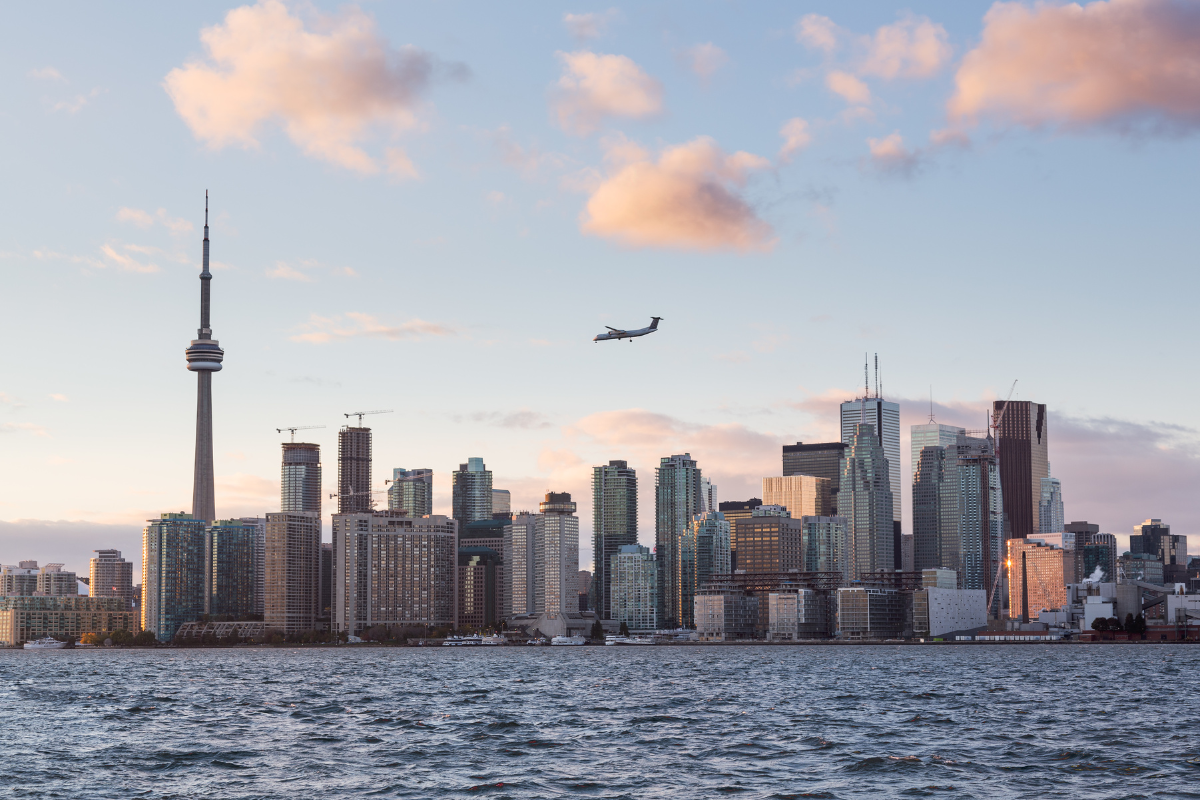
Toronto takes pride in our status as one of North America’s preeminent cities – the 4th largest on the continent, with one of the world’s most diverse economies. Yet, a few weeks ago City Council made a decision on Billy Bishop Airport that suggests our economic flight plan is headed off route. We're stuck thinking short term. And that means we’re still stuck thinking small.
While some herald the Council's recent vote on Billy Bishop as progress, let's be clear: we've just fumbled a crucial opportunity to secure the long-term future of one of our most vital economic assets. It’s demonstrative of how we’ve lost the will to make big, forward thinking decisions that secure our city's future.
Yes, Council did approve mandatory Runway End Safety Areas (RESA) upgrades under new federal rules. And yes, Mayor Chow's amendment usefully extends the 1983 Tripartite Agreement term for an additional twelve years beyond its current expiration date in 2033. But this was a bare-minimum approach, falling far short of what's needed to enable the longer-term planning and investment critical for this economic and transportation asset to thrive into the next decade – and beyond.
Consider this: Billy Bishop serves over 2 million passengers annually and pumps $2.1 billion into our local economy. From Bay Street executives to emergency medical flights, from Windsor and Thunder Bay, Halifax and New York, this airport connects our city to 20 North American destinations and supports more than 4,450 direct jobs. In an era when Toronto's productivity is faltering and our reputation for livability is under scrutiny, can we really afford to be tepid about such a crucial piece of infrastructure?
Notably, Council turned down a bigger modernization option that included: an underground utility corridor to provide both the airport and the Island with improved water sewage and water supplies; a restricted access bypass road for school busses and the city service vehicles; and a new noise wall to benefit local residents. These upgrades will most certainly be required in the future, so why put them off?
The bottom line is that, for an airport, let alone the country’s fifth biggest one, Billy Bishop is being placed on an unusually short leash, and that’s a major disappointment.
Importantly, the Board would have liked to have seen an indication of City Council’s willingness not just to extend the existing lease, but to modernize the Tripartite Agreement between Ports Toronto, the Federal government and the City for another 50 year term. This decades-old document is so outdated it specifically permits only one type of aircraft – the Bombardier Q400, which isn't even manufactured anymore. Imagine running any other major transportation hub under such restrictive conditions.
In addition to its economic contribution, Billy Bishop helps mitigate Toronto’s growing congestion crisis providing a convenient alternative to accessing Toronto’s core, reducing pressure on roadways and public transit networks. Any reduction or levelling off in the Airport’s operational capacity risks worsening congestion and further burdening Toronto’s transportation infrastructure.
The message this sends to potential investors and business partners is clear: Toronto isn't serious about long-term infrastructure planning. The 2045 deadline for the operating agreement – just over 20 years away – is an unusually short horizon in terms of major infrastructure investment. It is likely inadequate to provide private sector investors the confidence needed for future capital improvements, or to chart a forward-looking vision for the Airport to modernize and upgrade its infrastructure.
As other global cities aggressively upgrade their transportation infrastructure to stay competitive, Toronto appears stuck in a pattern of half-measures and delayed decisions. This isn't just about an airport – it's about our city's ability to think and plan boldly for the future.
The solution is straightforward: City Council needs to prioritize the renegotiation of the Tripartite Agreement and commit to a 50-year vision for Billy Bishop. Toronto's reputation as a world-class city depends on world-class infrastructure. It's time for our city leadership to stop playing small ball with one of our most valuable assets. Billy Bishop is an indispensable asset to Toronto’s economy, and ensuring its operational stability is crucial for the city’s future growth and prosperity.
-

Giles Gherson
President and Chief Executive Officer, Toronto Region Board of Trade
Giles Gherson is the President and Chief Executive Officer of the Toronto Region Board of Trade. He leads the Board’s efforts to advocate on behalf of our members and enhance the business competitiveness of our region.
Prior to joining the Board in 2022, Giles spent over 25 years in the private and public sector in progressively senior roles. He spent 15 years with the Province of Ontario, where he held multiple influential Deputy Minister roles – most extensively and recently as Deputy Minister, Economic Development.
To learn more about Giles, click here.


